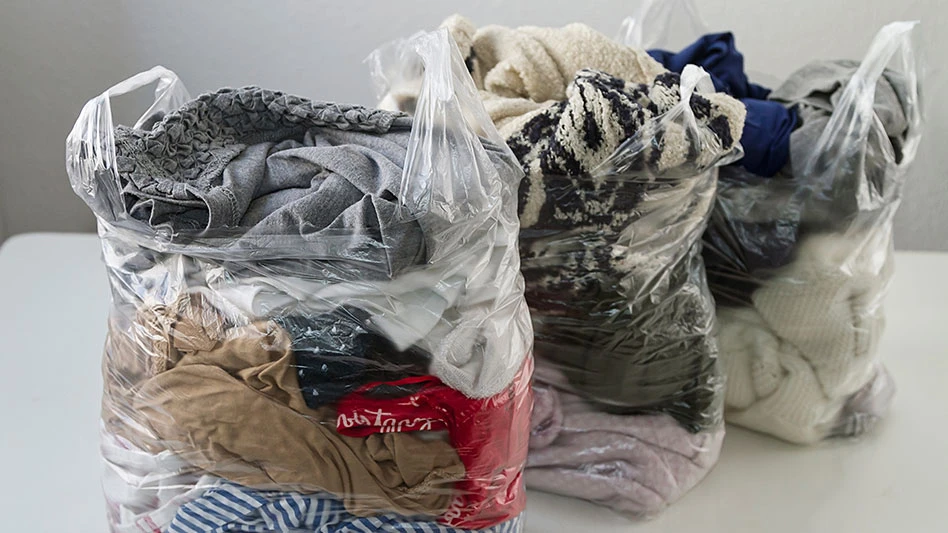
Imagenatural | stock.adobe.com
California Senate Bill (S.B.) 707, the Responsible Textile Recovery Act of 2024, was signed by Gov. Gavin Newsom on Sept. 28 and is the first extended producer responsibility (EPR) law specific to textiles in the U.S.

Farella Braun + Martel
CalRecycle, the state agency responsible for implementing S.B. 707, reports that Californians dispose of 1.2 million tons of textiles annually, accounting for 3 percent of landfilled material. S.B. 707 is part of a growing trend of EPR laws across the country that seek to hold producers responsible for product management throughout the product’s life cycle, including at the time of disposal or recycling. S.B. 707’s stated purpose is to increase the amount of textiles diverted from landfills.
The “covered products” under S.B. 707 are specified types of apparel and textile articles, but covered products are defined broadly and encompass a variety of items, such as shirts and dresses, leisurewear and athletic wear, handbags and accessories, bedding, window coverings, towels and tablecloths.
Although focused on textiles, S.B. 707 has significant implications for those in California’s waste collection and processing sectors, as well as those throughout the supply chain.
Impacts on California’s waste collection, processing sectors
Although it does not directly target California’s waste collection and processing sectors, S.B. 707 will have far-reaching impacts on those sectors. For example, CalRecycle must approve a producer responsibility organization (PRO) by March 1, 2026, and the PRO’s responsibilities include implementing a plan for the collection, transportation and management of covered products.
Among other things, the plan will describe the process for sorting, transporting and processing covered materials and how the PRO will provide incentive payments and grants for necessary infrastructure.
Significantly, S.B. 707 also provides an opportunity for those in the collection and processing sectors to influence the PRO’s plan. S.B. 707 contemplates the PRO’s governing board, including those involved in the collection, sorting and management of covered products.
Impacts on the producer
S.B. 707 imposes significant obligations on the “producer,” which could be the manufacturer or any number of downstream parties.
S.B. 707 has a tiered definition of producer that could reach well beyond the manufacturer. The default producer is the in-state manufacturer that is also the brand owner or licensee. However, if no such entity is present, the search for an in-state entity will include other entities in the supply chain, from the brand owner or licensee to the entity importing into California and, finally, to the distributor, wholesaler or retailer that sells the product in California. However, S.B. 707 specifies that a “producer” does not include those selling only secondhand covered products or with less than $1 million in annual aggregate global revenue.
A producer’s obligations include joining an approved PRO by July 1, 2026, paying fees, reporting on an annual basis, and meeting performance standards. Performance standards will be included in the PRO’s plan and likely will aim to avoid contamination in the recycling process by perfluoroalkyl and polyfluoroalkyl substances (PFAS) and other chemicals regulated by California laws, such as the Safe Drinking Water and Toxic Enforcement Act of 1986 (aka Proposition 65).
Enforcement responsibilities downstream of the manufacturer
S.B. 707 imposes enforcement responsibilities on others in the chain of commerce, including importers, distributors, retailers and certain online marketplaces used by third-party sellers. Between July 2028 and July 2029, CalRecycle will post a list of producers in compliance with S.B. 707 on its website. Businesses will be prohibited from importing, distributing, offering for sale or selling covered products from a producer that is not included in this list, unless they themselves fulfill the producer’s S.B. 707 obligations.
In addition, by July 2028, certain online marketplaces used by third-party sellers will have an annual obligation to (1) notify CalRecycle and the PRO of third-party sellers with covered product sales over $1 million in the preceding year and (2) provide information to those third-party sellers on their duty to comply with SB 707 and how to join the PRO.
Significant penalties
The potential penalties for violating S.B. 707 can be significant. The statute provides for administrative penalties of up to $10,000 per day or, if the violation is intentional or knowing, up to $50,000 per day. Moreover, providing records to CalRecycle under S.B. 707 is done under penalty of perjury.
Although a California law focused on textiles, S.B. 707 could have far-reaching impacts on California’s waste collection and processing sectors as well as textile supply chains. Potentially affected businesses should be proactive in identifying and addressing those potential impacts. For those in the collection and processing sectors, this could include joining the PRO’s governing board, as well as closely monitoring the development of the PRO’s plan and CalRecycle’s implementing regulations.
Christopher Rendall-Jackson is special counsel in Farella Braun + Martel’s San Francisco office, where his practice focuses on environmental litigation, land use and regulatory issues.
Latest from Recycling Today
- Orion ramping up Rocky Mountain Steel rail line
- Proposed bill would provide ‘regulatory clarity’ for chemical recycling
- Alberta Ag-Plastic pilot program continues, expands with renewed funding
- ReMA urges open intra-North American scrap trade
- Axium awarded by regional organization
- Update: China to introduce steel export quotas
- Thyssenkrupp idles capacity in Europe
- Phoenix Technologies closes Ohio rPET facility





